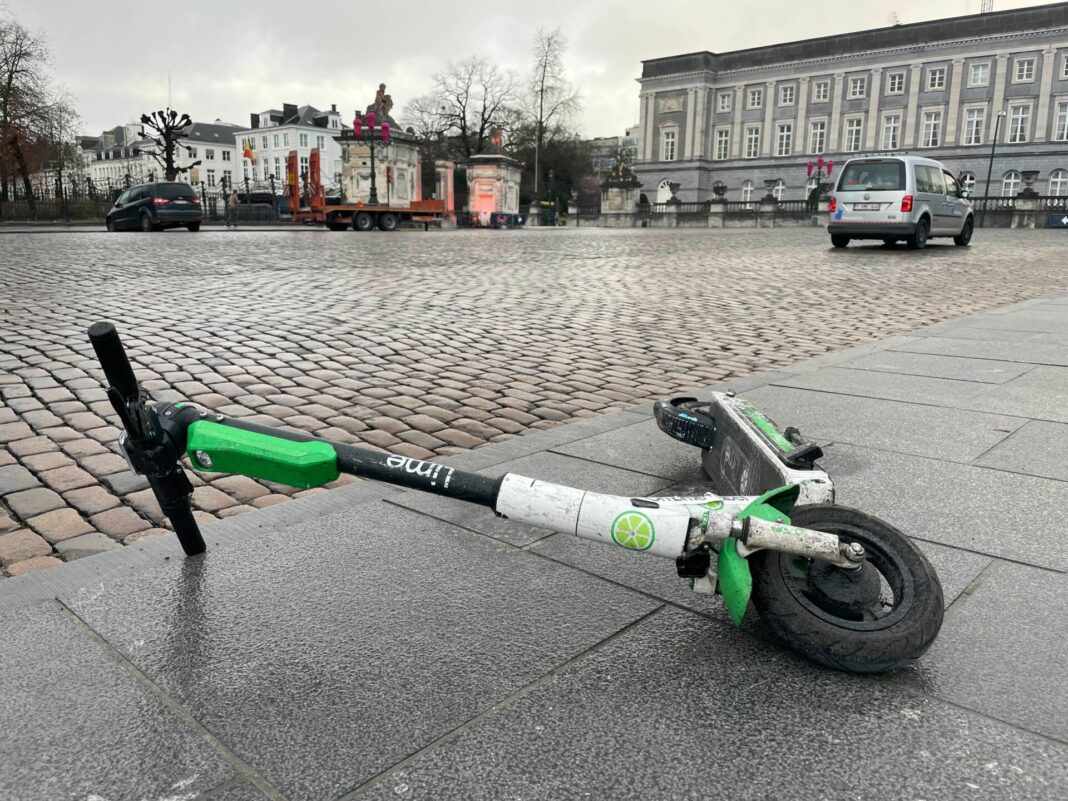Over 28% of residents of Brussels feel less secure on the street due to a rise in shared mobility vehicles, especially e-scooters, as per the Urban Road Safety Index of Cyclomedia.
Brussels is developing its urban planning and mobility to make the city more sustainable. The streets and footpaths are littered with e-scooters and e-bikes as a result. But some Brussels residents have not cheered on this development, and many now say they feel unsafe on the streets with all the new mobility vehicles.
As much as 60% of people that the Urban Road Safety Index surveyed found that the uptake in shared vehicles causes more accidents. Some feel very strongly about it, with 37% of Brussels residents would no longer recommend moving to the capital.
Strict rules were recently introduced for shared e-scooters in Brussels. People under 16 are no longer allowed to use e-scooters, using the pavement is now forbidden, and riding it in pairs on e-scooters is now also prohibited. Yet many Brussels residents don’t feel safe on the street despite these measures.
E-scooters aren’t the only culprits. Lack of decent infrastructure made of respondents feel unsafe and insufficient street lighting made a 52% increase in feelings of insecurity for respondents. 74% of those polled claimed to stop cycling after dark at all and 44% systematically avoid dangerous intersections.
35% want the number of sharing vehicles to be reduced in order to feel more safe on the streets again. However, another 36% find that improved infrastructure would be a big step in the right direction and that better bicycle paths should be a top priority.
But as long as that isn’t managed, no less than 74% of respondents said that they feel safer in a car than outside of it when commuting. There is still room for improvement in the infrastructure of Brussels, according to Joachim de Wilde, sales manager at Cyclomedia.
“Intersections and traffic situations are not always clear and new forms of mobility such as shared transport can create extra dangerous scenes. So there is still a lot of work to be done,” said de Wilde.



